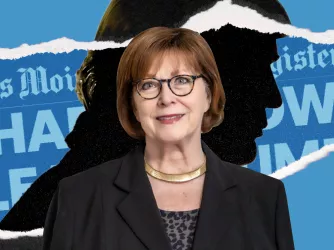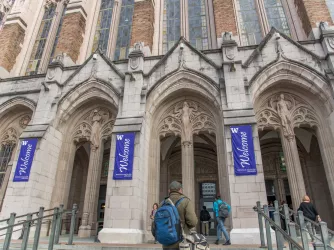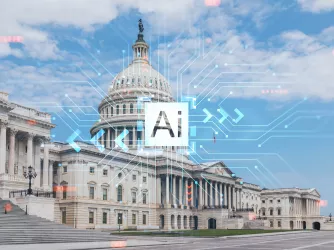Table of Contents
Student Op-Ed Calls on James Madison University to Revise Policy
A couple of weeks ago, Samantha wrote about a disturbing change in the policy on "Obscene Conduct" at James Madison University (JMU). The original policy stated,
No student shall engage in lewd, indecent or obscene conduct or expression on university property or in university-owned or operated buildings. (Emphasis added.)
The policy was changed to:
No student shall engage in lewd, indecent or obscene conduct or expression, regardless of proximity to campus. (Emphasis added.)
Samantha wrote,
Given that "lewd" and "indecent" are—unlike "obscene"—terms that do not have a clear legal definition, this policy could easily apply to expression that is crude or vulgar but still constitutionally protected (as most crude and vulgar expression is.)
What disturbs me is that between the last academic year and this one, JMU administrators made a conscious decision to prohibit more student speech.
So disturbing that we picked JMU's updated policy as our Speech Code of the Month for October. In the blog announcing this dubious distinction, Samantha linked to an excellent op-ed in the JMU student paper, The Breeze, by JMU student John Scott. Scott wrote,
I couldn't believe my eyes when I read it. It seemed James Madison University was trying to regulate free speech outside of its borders. Can administrators even do that? Constitutionally and ethically, the answer is no.
He did his own research and met with Director of the Office of Judicial Affairs Josh Bacon to inquire as to the reason for the policy change. He was told that the change was to protect students from "people who have been exposing themselves off campus."
Samantha wrote that extending university authority to off-campus activity was in fact likely targeted at online expression:
As I'm sure most users of sites like Facebook.com know, expression on these sites is often controversial and, yes, even lewd or indecent. But unless the expression rises to the level of one of the narrow categories of speech not protected by the First Amendment (such as obscenity or defamation), a public university like JMU cannot punish it. The earlier version of JMU's policy, prohibiting lewd and indecent expression anywhere on campus, was itself a violation of students' free speech rights, but this revision makes the policy far more overreaching and intrusive. Now, expression by a JMU student anywhere in the world is potentially subject to disciplinary action if discovered by JMU administrators.
Even if the policy wasn't targeted at online speech, it certainly grants the administration authority to punish student online expression if an administrator deems it "lewd" and "indecent." John expresses his concerns thusly:
Many students were concerned Judicial Affairs would trample their First Amendment rights with the new revised policy. I wanted to ensure indecent exposure was the only violation Judicial Affairs was trying to charge students with under this policy. Bacon concurred: "In terms of protected speech and online speech, we are not going to charge people with that."
While one certainly hopes JMU won't punish students for online expression, what's stopping them from doing it? Even if they won't do it now, what about later? John writes,
I hope Bacon's statement about the policy's interpretation is valid. However, if students can be charged under the revised policy based on individual circumstance, isn't there a chance Bacon could renege his guarantee? Sure, indecent exposure was the original cause for the revision, but what if a different situation concerning the policy in question arises where Judicial Affairs feels the need to charge a student? This is exactly why personal guarantees do not hold the same legal weight as written policy, as it should be.
John goes on to make the outstanding point that "Judicial Affairs' interpretation of the policy and the literal interpretation of the policy are completely different." He writes,
Judicial Affairs only wants to regulate students exposing themselves in the JMU community, which includes the surrounding Harrisonburg area. Bacon informed me that Judicial Affairs has no intention of regulating outside of the JMU community, much less the entire world. However, the literal interpretation of the policy originally panicked students.
Even if the current administration is benevolent and interprets the policy in a way that's favorable to student rights, what about administrations to come? What guarantee is there that a future administrator won't interpret the policy in such a way as to suppress students' rights? As John points out, there is none.
John opened the column with a quote from James Madison: "The right...of free communication among the people...has ever been justly deemed the only effectual guardian of every other right." Just so. On that note, John closes his column by following Samantha's advice and calling on Judicial Affairs to revise the policy in accord with students' rights.
Recent Articles
FIRE’s award-winning Newsdesk covers the free speech news you need to stay informed.

FIRE’s defense of pollster J. Ann Selzer against Donald Trump’s lawsuit is First Amendment 101

University of Washington alumni seek to revive the spirit of free inquiry

Meta’s content moderation changes closely align with FIRE recommendations
